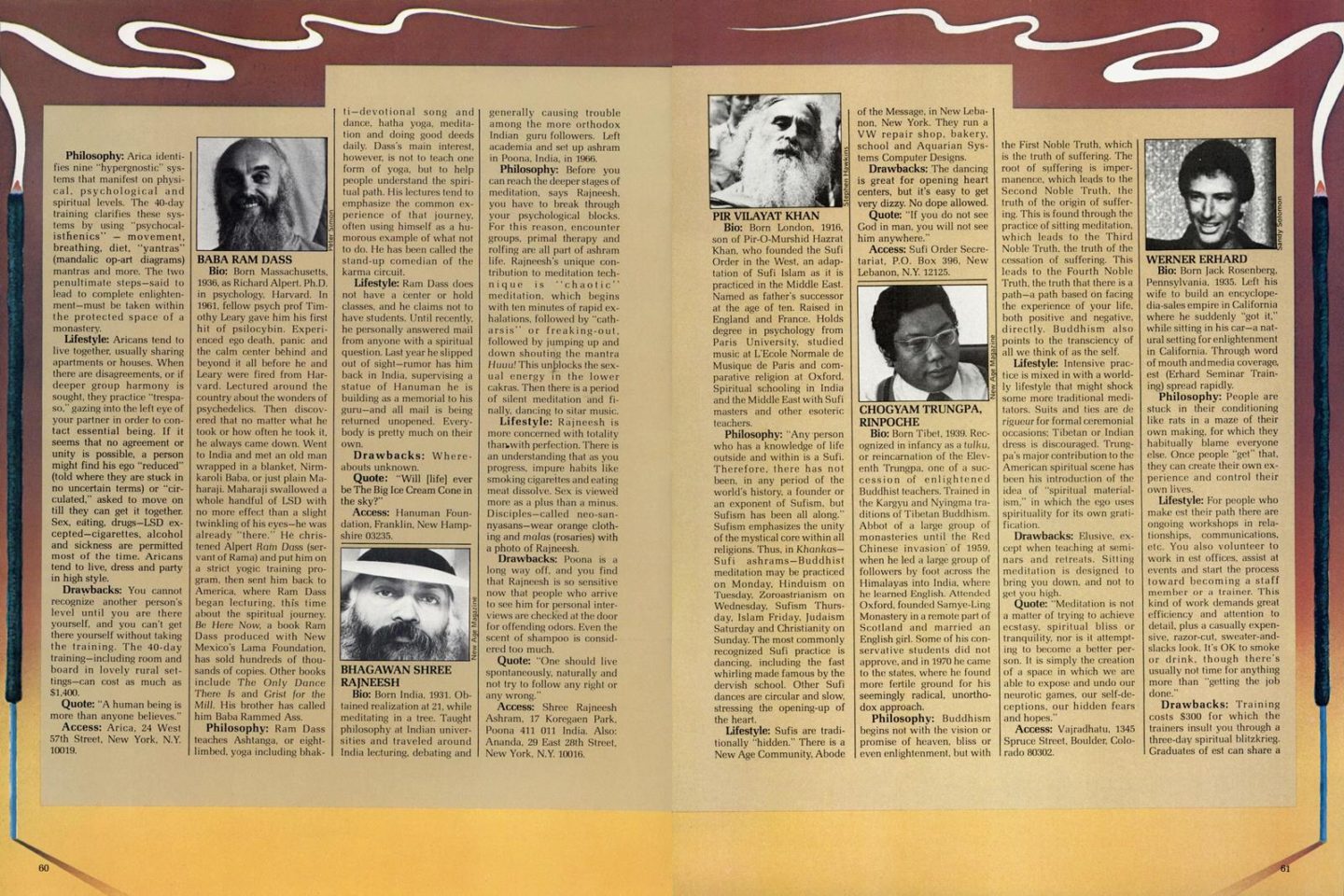By Rick Fields
Guru means teacher. A guru teaches you your own true nature, which all gurus agree cannot be expressed in words. Lao Tsu said, “Those who know don’t say.” However, that hasn’t stopped anyone from trying, including Lao Tsu.
A guru can act in many ways: as friend, mirror, guide, God or psychic martial arts master. There is also always the possibility that a guru is even crazier than thou. More than one perfect master has turned out to be a perfect con man. Only you can tell, and when dealing with the mercury of your own mind, it ain’t easy.
Gurus, like everybody else, seldom agree with each other. If they did, everything would be simpler, but less interesting. This guide is a line-up of the major-league gurus whose philosophies have become national issues. We’ve omitted a lot of one-horse, 12-apostle gurus on the assumption that people will always go to the advertised brand.
Choosing a guru is a lot like voting for president. It is an act that requires a leap of faith, not to mention Kierkegaard’s teleological suspension of the ethical. What you are about to read may shock you. Look within before you look without. Beware. And be aware.
SRI CHINMOY
Bio: Born India, 1931. Entered an ashram at 12, spent the next 20 years meditating, came to New York in 1964. Director, United Nations Meditation Group. Author, 302 books. He is also painter, composer and musician—his latest disc being “Music for Meditation” on the Folkways label.
Philosophy: Emphasizes love, devotion, meditation through the heart and surrender to the guru. Meditates with disciples once or twice a week. “I enter into each individual soul and see what the soul wants from me: peace, light, bliss. Whatever the soul wants I offer in utmost …
Read More
Author: High Times / High Times








